How to Prevent Overheating: Tips for Cooling Your PC or Laptop
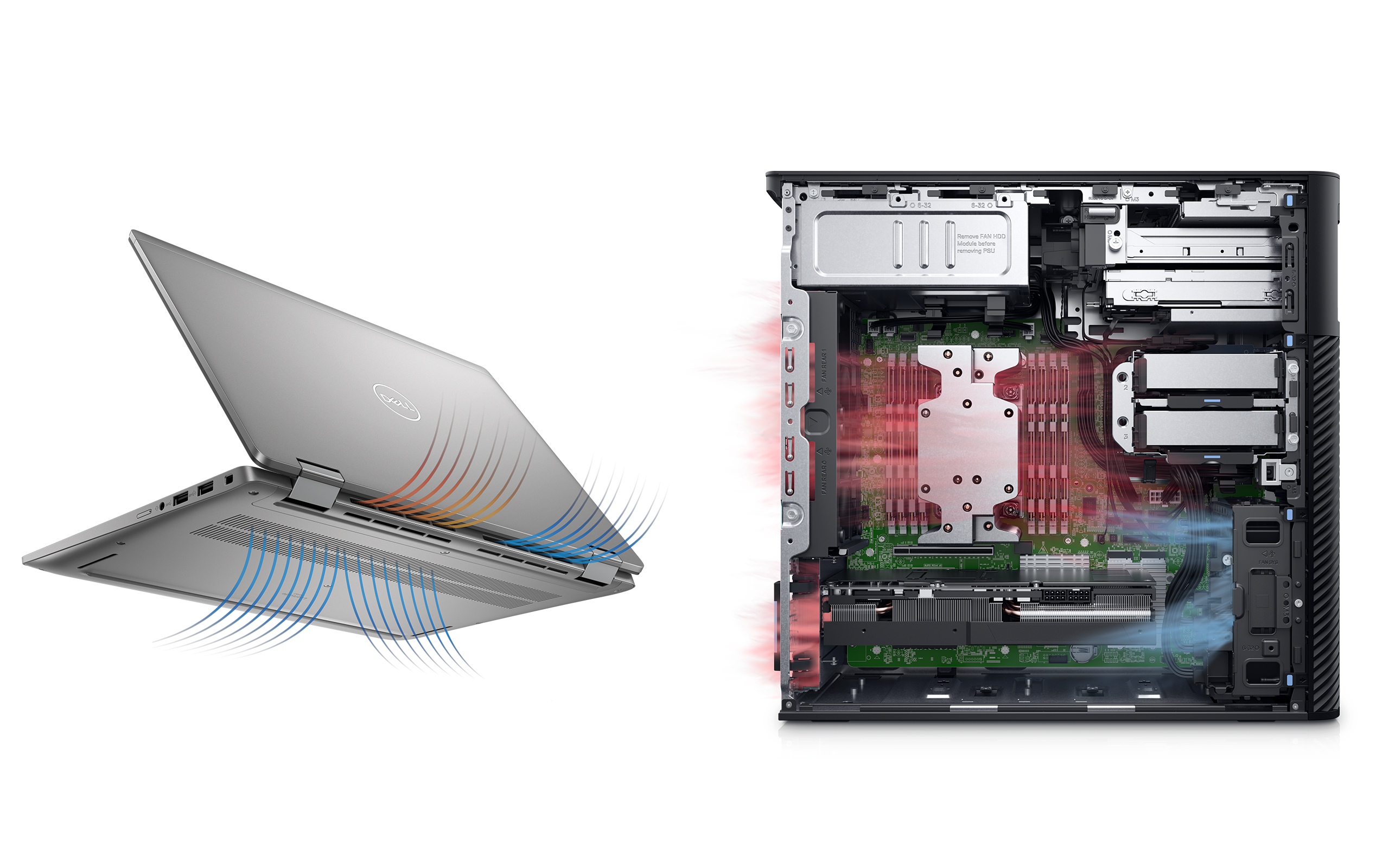
Understanding Overheating and Its Causes
Overheating occurs when your computer's internal components generate more heat than its cooling system can handle. Common signs include loud fan noise, slow performance, system crashes, or a device that's hot to the touch. Here are some common reasons why overheating might occur:
- Dust Buildup: Dust can block air vents and fans, restricting airflow and causing heat to build up.
- Poor Ventilation: Placing your laptop on soft surfaces like beds or couches can block vents. Always use your laptop on a hard, flat surface.
- High Resource Usage: Running demanding applications can push your CPU and GPU to their limits, generating more heat.
- Fan Not Working: If your fan isn't working properly, it won't be able to cool your computer effectively. Check if the fan is spinning and listen for any unusual noises.
- Outdated Drivers: Outdated drivers may not optimize hardware performance effectively, causing components to overheat.
- Ambient Temperature: Using your computer in a hot environment can contribute to overheating. Make sure your workspace is cool and well-ventilated.
- Background Processes: Too many background processes running simultaneously can increase the load on your CPU and GPU, leading to higher temperatures.
How to Resolve Computer Overheating Issue
Whether you're experiencing heat issues with your desktop or laptop, these instructions will guide you through the process diagnosing and resolving the issue effectively. Let's get started!
Checking Air Vents and Cleaning
The first step is to ensure that your computer's air vents are clean. Here's how to do it:
- Turn off your computer and unplug all the peripherals.
- Look for dust or debris in the air vents located on the back and bottom of your computer.
- Use compressed air to blow out any dust from the vents. Ensure you hold the can upright to avoid moisture buildup.
- Use a dry microfiber cloth to clean any excess dirt around the vents.
If the temperature doesn't reduce, proceed to the next step.
Adjusting Power Settings in Windows
Your power plan affects how much heat your computer generates. Switching to a balanced or power-saving mode can reduce heat output.
- Go to Start > Settings > System > Power & battery. Open Windows power settings.
- If you're using a Best Performance plan, switch to Balanced or Best Power Efficiency.
If the computer is still running hot, proceed to the next step.
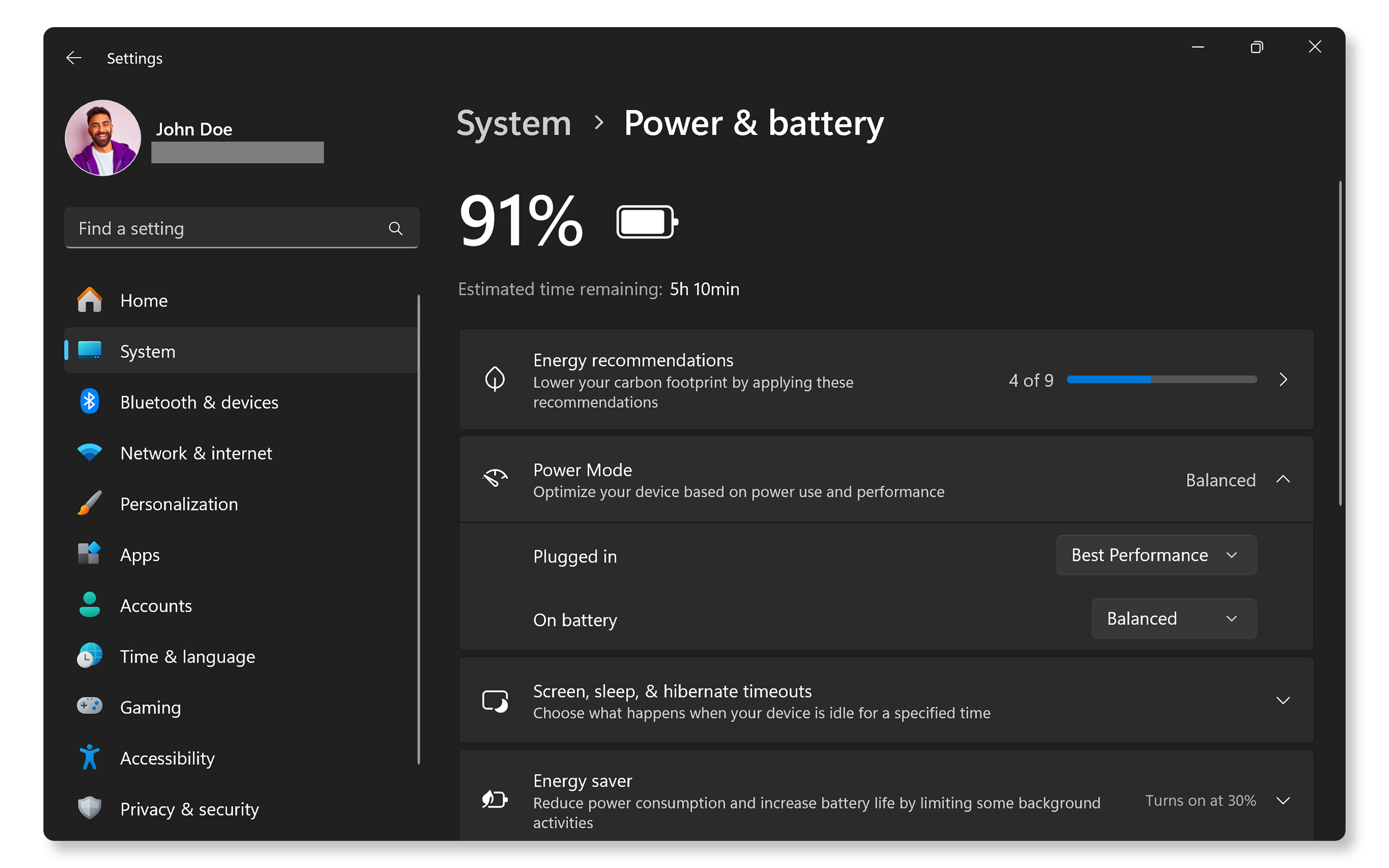
Updating Drivers and BIOS
Outdated drivers and BIOS can often lead to functionality issues with hardware components like fans. SupportAssist is Dell's automated tool that scans your Windows computer for driver and firmware updates, downloads, and installs them.
Using SupportAssist
- Search for SupportAssist in the Start menu and open the app.
- On the Home tab, select Update Software.
- Click Start to check for driver and BIOS updates.
- Follow the on-screen instructions to complete the installation and restart your computer if prompted.
If you don't have SupportAssist, refer to our driver update guide for alternative methods to download and install Dell drivers.
If updating drivers and BIOS didn't fix computer heating up, proceed to the next step.
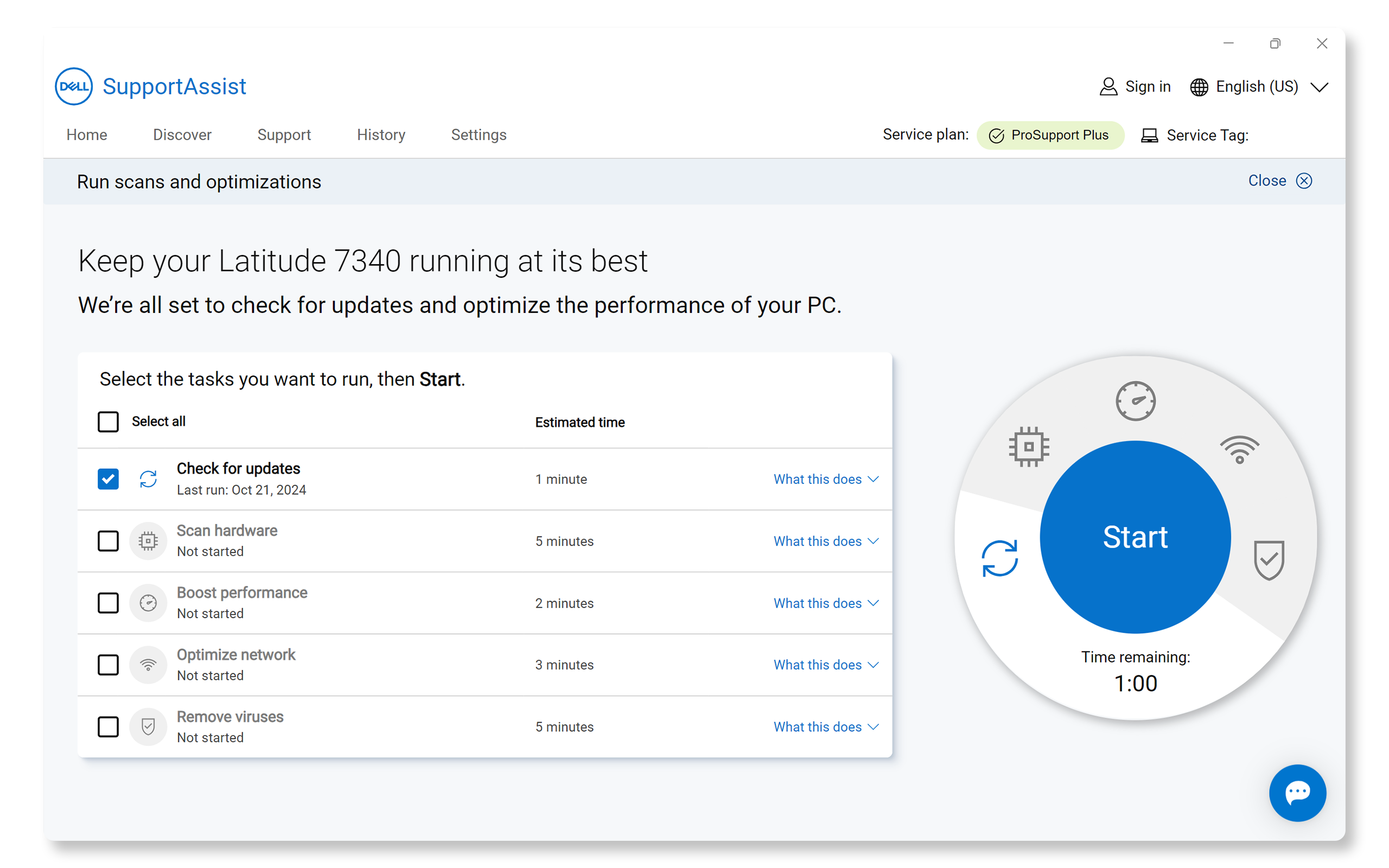
Checking for Windows Updates
Keeping your operating system updated ensures you have the latest features and fixes. To check for Windows updates:
- Go to Start > Settings > Windows Update. Open Windows Update settings.
- Select Check for updates and install the available updates.
If updating the operating system doesn't cool down your computer, proceed to the next step.
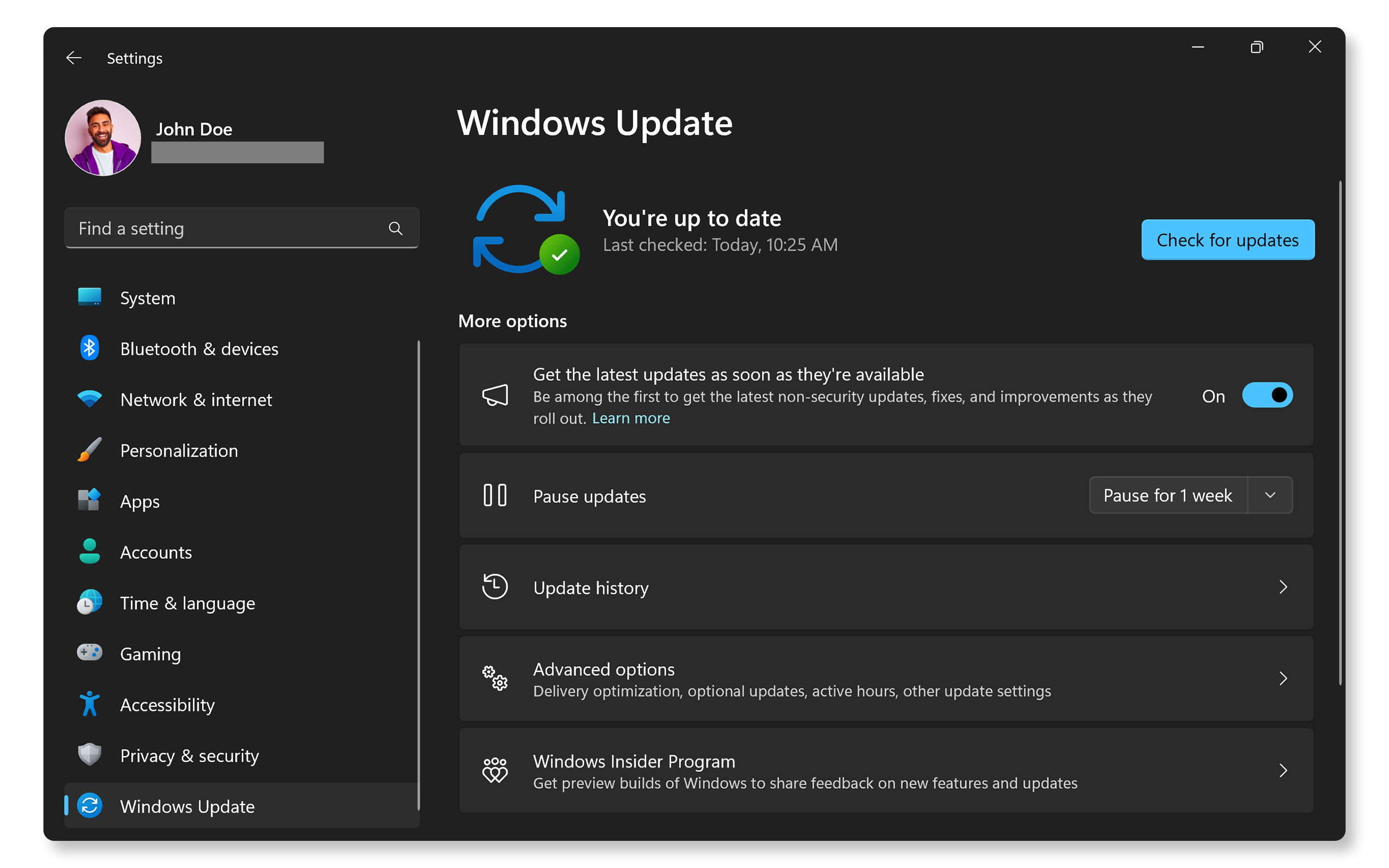
Managing Thermal Settings
If you have Dell Optimizer or Dell Power Manager installed on your Latitude or Precision workstations, you can manage thermal settings to optimize the CPU and cooling fan performance.
- Search for Dell Optimizer or Dell Power Manager in the Start menu and open the app.
- Navigate to the Thermal Management section.
- Choose the Cool option to optimize fan speed and performance for lower temperatures. This option will increase the fan speed which increases the fan sound.
If adjusting the thermal settings doesn't reduce overheating, proceed to the next step.
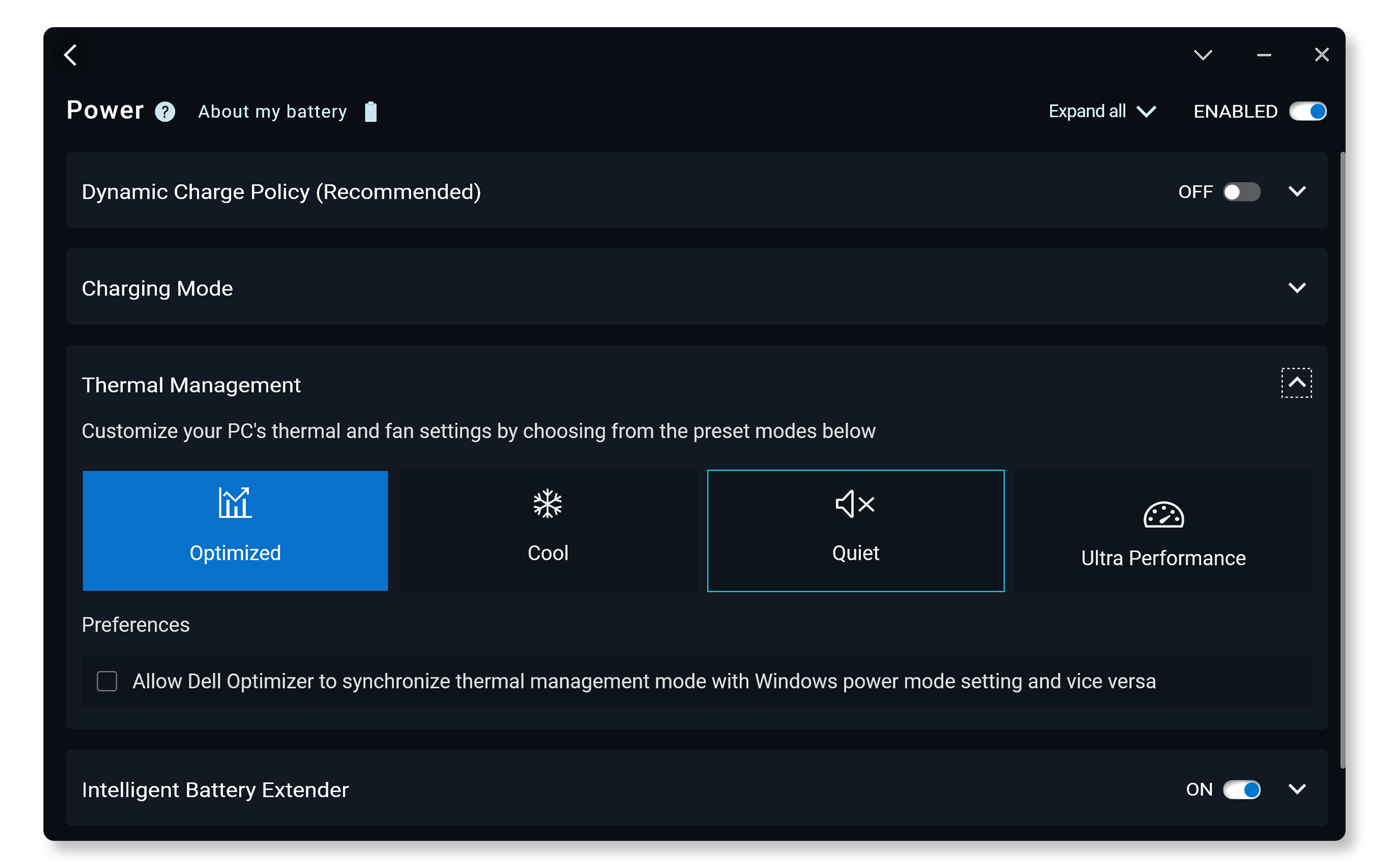
Running a Dell Hardware Diagnostics
Dell computers come with SupportAssist to scan your computer for hardware-related problems, including fan issues.
- Go to SupportAssist fan test. If SupportAssist isn't installed, follow the prompts to install the app if needed.
- Once the diagnostic is complete, SupportAssist displays the results.
- If a hardware issue is detected, you may be guided to update drivers or contact Dell Technical Support for repair options.
If the overheating issue persists, try some additional steps to resolve overheating issues.
Frequently Asked Questions (FAQs)
Here are some answers to common questions that users ask about a computer overheating.
1. How do I know if my laptop is overheating?
- If your laptop feels excessively hot to touch or if it shuts down unexpectedly, it might be overheating. Follow the steps in this guide to resolve overheating issues.
2. Can I use my computer when it's overheating?
- It's best to shut down your computer until it cools down to prevent any damage.
3. How can I reduce fan noise on my computer?
- Try cleaning the vents, adjusting thermal settings, and making sure your computer is placed on a flat surface.
4. What thermal profile should I use in apps such as Dell Optimizer or Alienware Command Center?
- For everyday use, choose the Optimized or Cool mode. If you're gaming or doing video editing, switch to Performance mode.
5. Can I control the fan speed on my computer?
- Manual fan control isn't available on Dell computers, but you can adjust the fan speed in Alienware Command Center (for Alienware devices only).
6. Can I use an external cooling pad for my laptop?
- Yes, cooling pads enhance airflow and help reduce heat during prolonged use.
7. Is it safe to use a vacuum cleaner to clean vents?
- No, vacuum cleaners can generate static electricity, which might damage internal components. Use compressed air instead.
8. What is thermal throttling?
- Thermal throttling is a safety feature that kicks in when your computer's temperatures get too high. It reduces performance to prevent overheating and protect your hardware.
9. How do I reduce overheating while gaming?
- Lower the in-game graphic settings.
- Reduce the brightness of your laptop screen.
- Use a cooling pad for your laptop.
- Close unused apps running in the background.
10. Should I update my BIOS/UEFI to fix overheating?
- Yes, updating the BIOS/UEFI can improve hardware compatibility and thermal performance.
11. What if none of these troubleshooting steps work?
- Additional Troubleshooting: You can try some additional tips to resolve overheating issues.
- Use Dell Community Forums: Join the Dell Community Forums to get help from other users.
Video Resources
...

